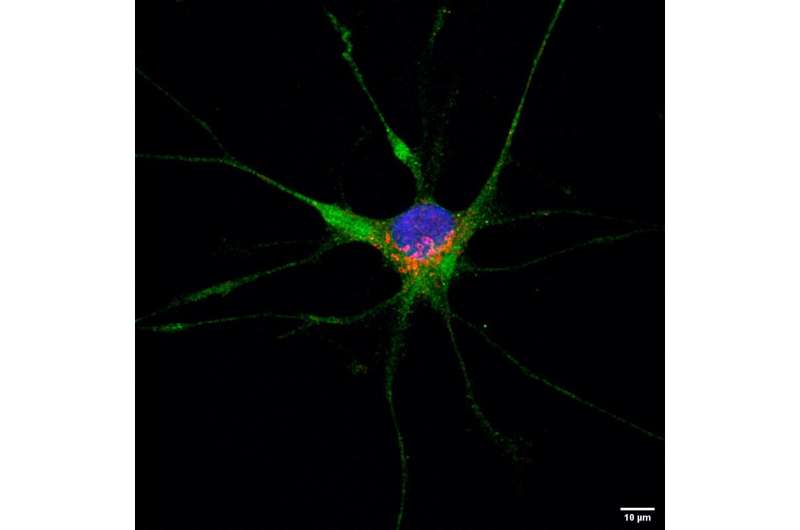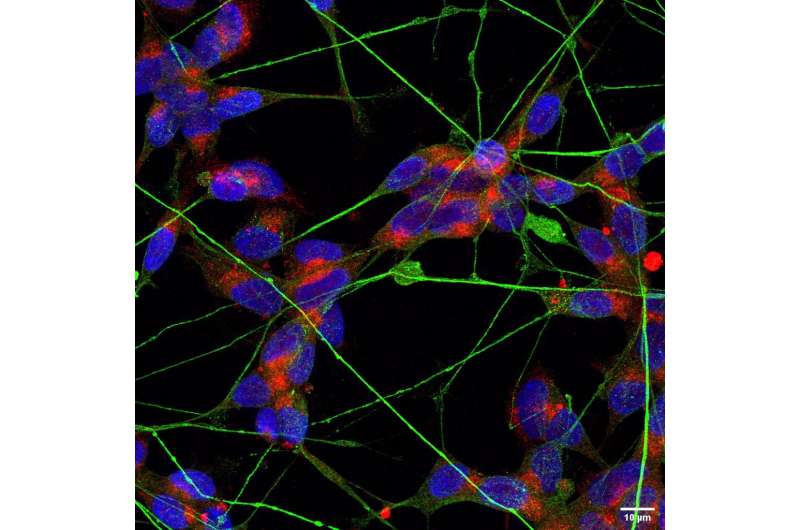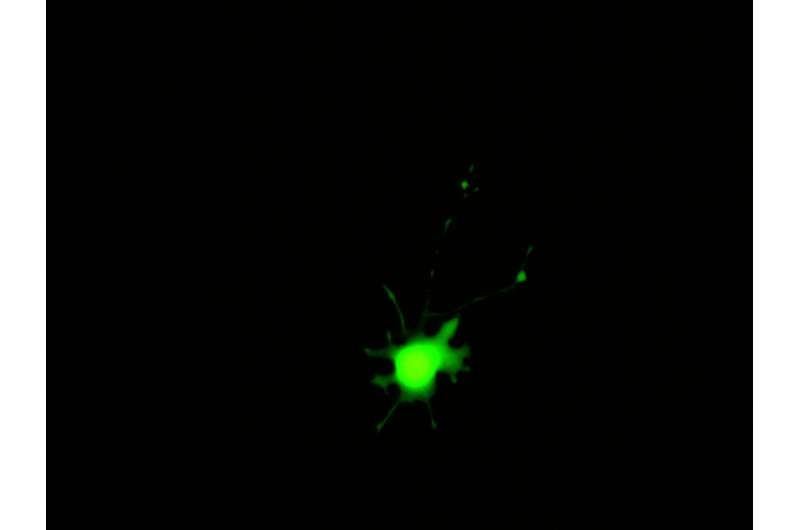Study illuminates how COVID-19 worms its way into the brain

New research offers an up-close view of how SARS-CoV-2, the virus that causes COVID-19, can spread to the brain. The study helps explain the alarming array of neurological symptoms reported in some patients with COVID-19, as well as why some patients suffer severe neurological effects while others experience none at all.
The researchers report evidence that SARS-CoV-2 can infect both the nerve cells that power our brains (neurons), and the cells in the brain and spinal cord that support and protect neurons (astrocytes).
"Our findings suggest that astrocytes are a pathway through which COVID-19 causes neurological damage," said Ricardo Costa, Ph.D., a postdoctoral fellow at the Louisiana State University (LSU) Health Shreveport and the study's first author. "This could explain many of the neurologic symptoms we see in COVID-19 patients, which include loss of sense of smell and taste, disorientation, psychosis and stroke."
Costa will present the research at the American Physiological Society annual meeting during the Experimental Biology (EB) 2021 meeting, held virtually April 27-30. The study is led by Diana Cruz-Topete, assistant professor of molecular and cellular biology at LSU Health Shreveport, and includes collaborators Oscar Gomez-Torres, Ph.D., and Emma Burgos-Ramos, Ph.D., from Universidad de Castilla-La Mancha in Spain.

In the respiratory system, SARS-CoV-2 is known to infect a person's cells by grabbing hold of proteins on the cell surface called angiotensin-converting enzyme-2 (ACE2) receptors. It has been unclear whether brain cells have this receptor.
For the study, Costa and colleagues examined RNA and proteins to determine whether cell cultures of human astrocytes and neurons expressed ACE2. They then exposed the cells to a version of the SARS-CoV-2 virus that had been modified to be safe for researchers to handle. The studies confirmed that both astrocytes and neurons express the ACE2 receptor and that both cell types can become infected with SARS-CoV-2, though astrocytes were less likely to become infected.
Astrocytes are the main gateway to the brain, responsible for shuttling nutrients from the bloodstream to the neurons while keeping harmful particles out. By resisting infection, astrocytes could help keep SARS-CoV-2 out of the brain, but once infected, they could easily pass the virus along to many neurons, according to researchers.

"While astrocytes display a higher resistance to infection, neurons seem to be more susceptible," said Costa. "This suggests that only few astrocytes getting infected could be sufficient for the infection to quickly spread to neurons and multiply quickly. These observations could explain why while some patients do not have any neurological symptoms, others seem to have severe ones."
More information: Costa will present this research from 3:15-3:30 p.m. Tuesday, April 27 (abstract).



















